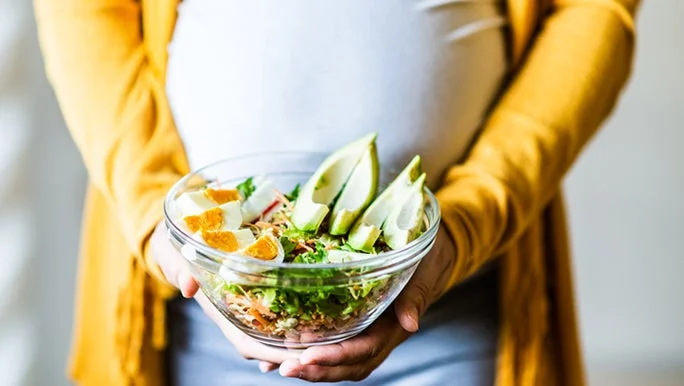Why Diet Matters for Fertility ?because Nutrition directly impacts your reproductive health. Are you looking to boost fertility naturally? Discover the best fertility boosting diet to enhance ovulation, improve egg & sperm quality, and increase your chances of getting pregnant. Learn what to eat (and avoid) for optimal reproductive health.
What is a Fertility Diet?
A fertility diet is a way of eating that supports reproductive health, balances hormones, improves egg and sperm quality, and increases your chances of conception. Whether you’re trying to conceive naturally or undergoing fertility treatments like IVF, optimizing your diet can significantly boost conception success.

Can Diet Really Improve Fertility?
Research confirms that nutrition plays an important role in fertility. A well-balanced fertility diet can:
Regulate ovulation (in women)
Improve sperm count & motility (in men)
Reduce inflammation (linked to PCOS & endometriosis)
Support hormonal balance (estrogen, progesterone, testosterone)
Key Nutrients That Support Fertility
Nutrients ,their Benefits and Sources
Folate Supports egg development, reduces defects Leafy greens, legumes, citrus
Iron Supports ovulation and blood production Red meat, lentils, spinach, quinoa
Zinc Boosts egg and sperm health Pumpkin seeds, seafood, eggs, beef
Omega-3s Reduces inflammation, improves egg quality Fatty fish, flaxseeds, chia seed, walnuts
Vitamin D Hormonal support, immune health Sunshine, mushrooms, fortified milk, Egg yolks
CoQ10 Enhances egg and sperm energy Organ meats, oily fish, supplements
Antioxidants Protects cells from oxidative stress Berries, nuts, green tea
How Diet Affects Hormonal Balance
Insulin Resistance due to high sugar intake disrupts ovulation (PCOS)
Chronic Inflammation is linked to endometriosis & poor egg quality
Low Antioxidants level due to less intake of fruits and vegetables increases DNA damage in sperm & eggs
The Best Fertility-Boosting Foods
Healthy Fats (Avocados, Olive Oil, Nuts)
Healthy monounsaturated fats improve insulin sensitivity and reduce inflammation. They help in hormone production, support ovulation and embryo implantation.
Avocados are Rich in vitamin E & monounsaturated fats.
Olive Oil Reduces inflammation & improves blood flow to reproductive organs.
Coconut Oil Supports thyroid function (critical for ovulation).
High-Quality Protein (Eggs, Fish, Legumes)
Opt for plant-based proteins like lentils and beans, or clean animal proteins like pasture-raised eggs and wild-caught fish and grass fed beef.They’re rich in iron, choline, and omega-3 fatty acids, all vital for fertility.
Wild Caught Salmon has Omega-3s that improve egg quality.
Grass Fed Beef is High in iron & zinc that are essential for ovulation & sperm health.
Lentils & Beans are Plant based protein having folate for fertility.

Antioxidant-Rich Fruits (Berries, Citrus) and vegetables
Antioxidants like vitamin C and polyphenols protect eggs and sperm from free radical damage. Berries are low in sugar and high in fertility-boosting nutrients.
Berries (Blueberries, Raspberries) Protect eggs from oxidative stress.
Leafy Greens (Kale, Spinach) are High in folate & iron.
Cruciferous Veggies (Broccoli, Brussels Sprouts) Help detox excess estrogen.
Whole Grains (Quinoa, chia seed, Oats)
Complex carbohydrates with a low glycemic index support blood sugar regulation and reduce insulin spikes that can disrupt hormone levels, especially in women with PCOS.
Quinoa is a complete protein and also regulates blood sugar.
Oats Supports progesterone production.
Chia Seeds have Omega-3s + fiber for hormonal balance.
Fertility Superfoods
Macadamia Nuts are High in selenium (boosts sperm motility).
Pomegranate Improves blood flow to the uterus.
Bone Broth supports gut health (linked to hormone regulation).
Fertility Diet for Men
Fertility isn’t just a women’s issue. Men also benefit from nutrient-rich diets that improve:
Sperm count
Motility (movement)
Morphology (shape)
DNA quality
Men should focus on:
Vitamin C (citrus, bell peppers)
Zinc (pumpkin seeds, shellfish)
Selenium (Brazil nuts, tuna)
CoQ10 and omega-3s
Foods to Avoid When Trying to Conceive
Trans Fats
Found in processed snacks, margarine, and fried foods, trans fats can increase insulin resistance and reduce ovulatory function.
Excess Sugar
High sugar intake spikes insulin, disrupts hormone balance, and can contribute to PCOS and inflammation.
Refined Carbohydrates
White bread, pasta, and sugary cereals can negatively impact ovulation and hormonal health.
Excess Caffeine
Moderate caffeine is usually safe, but too much (>200mg/day) may affect ovulation and decrease the chance of conception.
Processed Meats
(Bacon, Sausages) contain nitrates linked to infertility.
High-Mercury Fish (Swordfish, Tuna)
Damages reproductive cells.
Additional Fertility Diet Tips
Stay Hydrated
Herbal teas (red raspberry leaf, nettle) support uterine health.
Avoid plastic bottles (BPA disrupts hormones).
Support Gut Health
Probiotics (yogurt, kefir, sauerkraut) improve nutrient absorption.
Manage Stress
High cortisol lowers progesterone (key for implantation).
Exercise Moderately
Yoga & walking improve circulation to reproductive organs.
When to Start a Fertility Diet
Ideally, begin a fertility-friendly diet at least 3 months before trying to conceive, as this is how long it takes for eggs and sperm to mature. Early dietary changes help create a healthy foundation for pregnancy and fetal development.
Conclusion
The fertility diet is a powerful, natural way to optimize your reproductive health. By focusing on nutrient-dense, whole foods and avoiding hormone-disrupting ingredients, combining it with stress management, sleep, and moderate exercise, you can boost fertility, balance hormones, and set the stage for a healthy pregnancy.
Whether you’re planning for your first baby or managing fertility challenges like PCOS, endometriosis, or unexplained infertility, your diet can be a key part of your fertility journey.